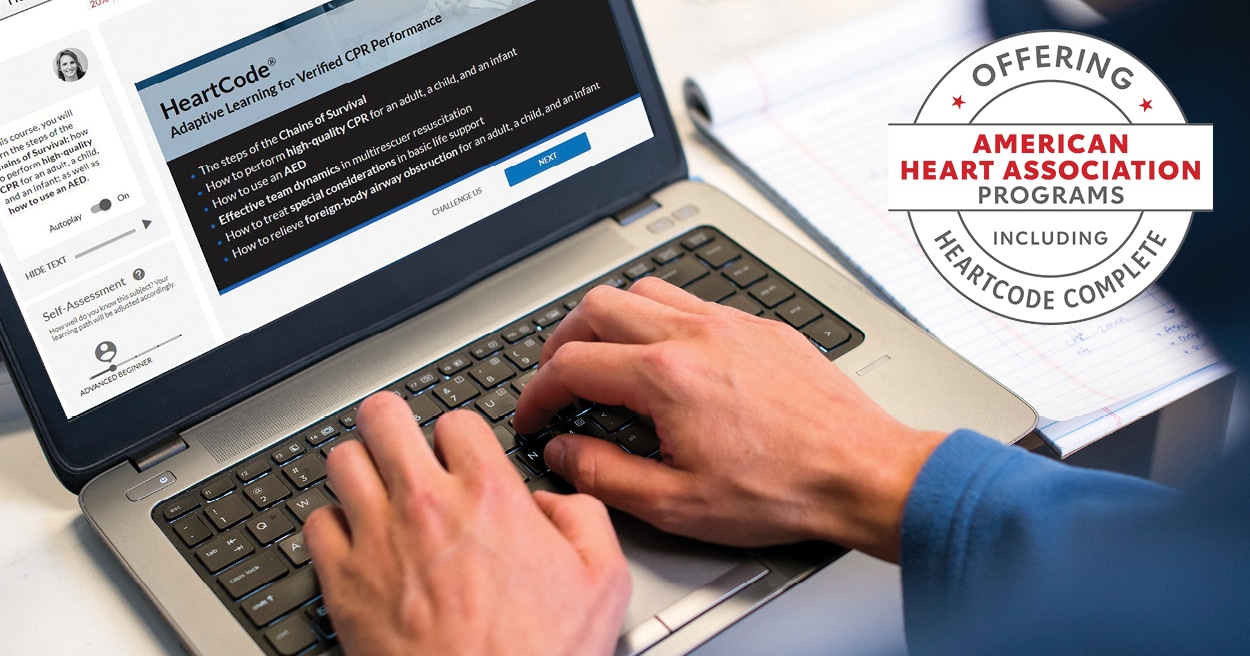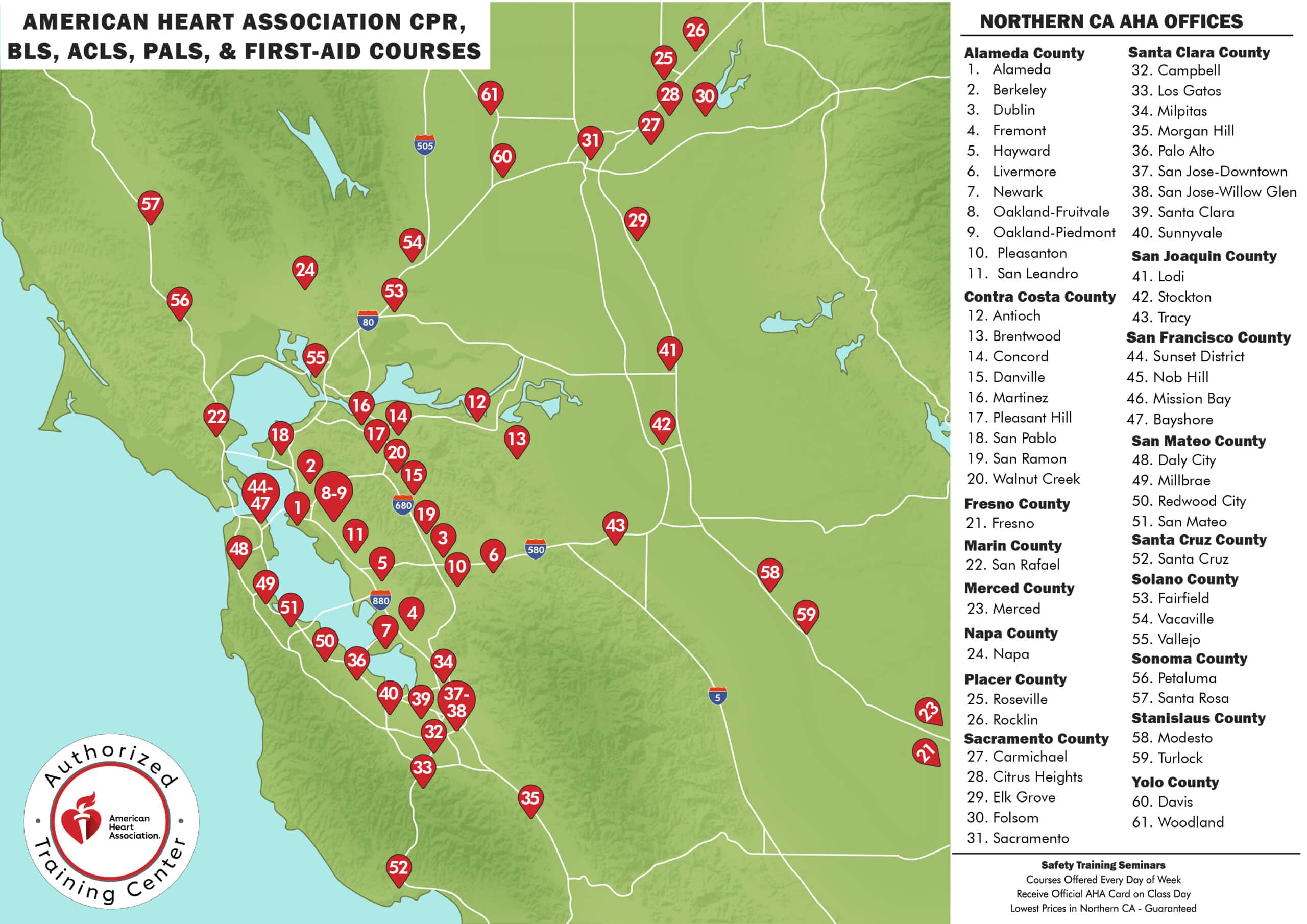American Heart Association© PALS Certification Classes in Folsom
View PALS Courses in Folsom & Other Cities Near You

American Heart Association© PALS
Course Name: PALS Pediatric Advanced Life Support (Initial or Renewal)
Online Course Length: 3-4 hours (At your home.)
Skills Testing: 30-40 minutes (At one of our over 60 testing sites.)
Price: $290 (This includes the online PALS course, skills testing, & PALS card.)
Certification: American Heart Association© PALS certification card.
When: PALS classes are offered Monday – Sunday from 7 am to 6 pm
Card Issuance: You will receive the PALS certification card on day of class.
Add ons available: ACLS, BLS, First-aid, Opioid, or Bloodborne Pathogens
Low Price Guranetee: Lowest Prices in Northern CA. Price matching policy.
View Upcoming PALS Courses in Folsom
View PALS Courses in Folsom & Other Cities Near You

Pediatric Emergency Care Excellence: American Heart Association PALS Classes in Folsom
In the ever-evolving landscape of pediatric emergency care, proficiency in Pediatric Advanced Life Support (PALS) is paramount. Folsom, a vibrant community nestled in California, understands the significance of equipping its healthcare professionals with the latest life-saving techniques tailored specifically for pediatric patients. Enter the American Heart Association (AHA) PALS classes, an indispensable resource for medical personnel striving to enhance their skills and provide optimal care to pediatric patients.
The Critical Role of PALS Training
PALS training is not merely a certification; it’s a comprehensive framework of knowledge and skills designed to manage pediatric emergencies effectively. These emergencies, ranging from respiratory distress to cardiac arrest in children, demand rapid and precise intervention to improve patient outcomes.
In Folsom, where medical facilities cater to a diverse population of children with varying healthcare needs, PALS training is indispensable. Whether in hospitals, pediatric clinics, or pre-hospital settings, healthcare providers must be equipped to navigate complex pediatric emergencies with confidence and competence.
The American Heart Association: Setting the Standard
The American Heart Association stands as a global leader in cardiovascular care and education. With a legacy of pioneering research and guidelines, the AHA ensures that PALS protocols reflect the latest evidence-based practices tailored specifically for pediatric patients.
In Folsom, AHA PALS classes serve as the gold standard for medical professionals seeking quality pediatric emergency training. Led by certified instructors, these classes not only impart knowledge but also foster critical thinking and hands-on skills development tailored to the unique needs of pediatric patients.
Tailored Curriculum for Varied Skill Levels
PALS classes in Folsom cater to a diverse audience, including pediatricians, nurses, paramedics, and allied healthcare professionals. Recognizing the varying skill levels and clinical backgrounds of participants, the curriculum is tailored to meet individual learning needs.
Novice learners delve into foundational concepts such as pediatric assessment and basic life support (BLS) principles before progressing to advanced topics like pediatric pharmacology and resuscitation algorithms. Experienced practitioners benefit from scenario-based simulations and case studies that refine decision-making and teamwork skills in high-stress pediatric emergencies.
Interactive Learning Environment
Gone are the days of passive didactic lectures. PALS classes in Folsom emphasize interactive learning methodologies to enhance retention and application of knowledge. Participants engage in hands-on simulations, collaborative team drills, and real-time feedback sessions to simulate real-world pediatric emergency scenarios.
Instructors encourage active participation and open dialogue, fostering a supportive learning environment where questions are welcomed, and discussions are encouraged. This interactive approach not only reinforces theoretical concepts but also cultivates confidence in applying PALS algorithms effectively in pediatric emergencies.
Simulation Technology: Bridging Theory and Practice
Simulation technology lies at the heart of PALS training in Folsom. Simulation centers equipped with state-of-the-art pediatric manikins, defibrillators, and monitoring equipment replicate pediatric clinical environments with remarkable fidelity.
Participants are immersed in realistic scenarios that challenge their clinical reasoning and procedural skills specific to pediatric patients. From managing respiratory distress to coordinating a team response for a pediatric cardiac arrest, simulation exercises provide invaluable hands-on experience without compromising patient safety.
Continuous Professional Development
In Folsom, PALS certification is not a one-time achievement but a commitment to lifelong learning. The pediatric medical landscape evolves rapidly, necessitating ongoing education and skill refinement. The AHA offers various avenues for continuous professional development, including refresher courses, online modules, and advanced pediatric emergency certifications.
Moreover, Folsom’s medical institutions prioritize a culture of learning and quality improvement. Regular pediatric emergency simulations, debriefing sessions, and interdisciplinary training opportunities ensure that healthcare teams remain agile and proficient in PALS protocols specific to pediatric patients.
Impact on Pediatric Patient Care
The ultimate measure of PALS training’s efficacy lies in its impact on pediatric patient outcomes. In Folsom, healthcare providers equipped with PALS skills are better prepared to respond to pediatric emergencies promptly and effectively. Timely interventions, such as pediatric advanced airway management and appropriate medication administration, can mean the difference between life and death for pediatric patients in crisis.
Furthermore, PALS-trained professionals exhibit greater confidence and teamwork, fostering a culture of safety and excellence in pediatric patient care. This proactive approach to pediatric emergency training translates into tangible benefits for the community, with improved outcomes and reduced morbidity associated with pediatric emergencies.
Conclusion
American Heart Association PALS classes in Folsom epitomize excellence in pediatric emergency medical education. From tailored curriculum and interactive learning environments to cutting-edge simulation technology and continuous professional development, these classes empower healthcare providers to deliver superior care to pediatric patients when it matters most.
As Folsom continues to prioritize pediatric healthcare, investing in PALS training remains a cornerstone of its commitment to pediatric patient safety and well-being. By equipping its medical workforce with the skills and knowledge to tackle pediatric emergencies head-on, Folsom stands at the forefront of pediatric emergency medical care, saving lives and ensuring a healthier future for its pediatric population.
FAQs
Who should attend PALS certification classes in Folsom?
PALS certification classes are primarily designed for healthcare professionals who are involved in the management of pediatric patients, including pediatricians, emergency physicians, nurses, paramedics, and respiratory therapists.
How long does a PALS certification course typically last?
PALS certification courses usually span over two days, with a combination of didactic instruction, skills practice, and simulated scenarios to ensure comprehensive learning and skill mastery.
Is there a renewal requirement for PALS certification?
Yes, PALS certification is typically valid for two years, after which healthcare professionals are required to undergo PALS renewal courses to maintain their certification.
